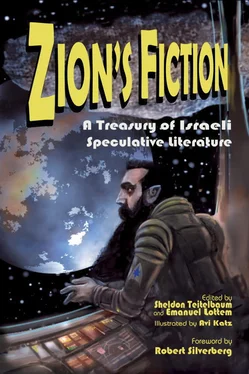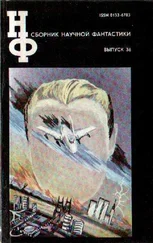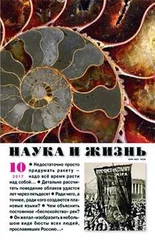“Those treaties were signed many generations ago. Things change,” I said, though I knew that it was silly to get into an argument with one of them.
“My grandmother signed them.”
“Is it your baby?” I asked, making a point of using their term, as I gestured at the human larva on my desk.
“It’s mine.” Luckily, the larva was asleep. Fifteen years of work had more or less inured me, but at that hour of the morning, and in my condition, I knew that my stomach wouldn’t be able to stand the sight of a squirming pinkish creature.
“Do you have others?”
“Maybe.” The female Slows don’t usually give birth to more than three or four offspring. Given the way they are accustomed to raising offspring, even that many is hard work. This savage woman was young, as far as I could judge. She might have concealed another larva somewhere before coming here. There was no way of knowing.
“You can’t break the agreements,” she said, cutting into my thoughts. “No. Listen to me. You’ve violated almost every clause. Every few years you renege on something. When you forced us into the Preserves, you promised us autonomy, and since then you’ve gradually stolen everything from us. From hard experience we’ve learned not to trust you. Like sheep, we kept quiet and let you push us farther and farther into a corner. But now I’m warning you. Just warning you: don’t you dare touch the children!”
Many people will think this strange, but over the years I’ve learned to see a kind of beauty in the Slow women. If you ignore the swollen protrusions on their chests and the general swelling of their bodies, if you ignore their tendency to twist their faces wildly, with some experience you can distinguish between the ugly ones and the pretty ones, and this one would definitely have been considered pretty. If her grandmother had really signed the treaties, as she said, she might have been one of their aristocrats, the descendant of a ruling dynasty. It was evident that she could express herself.
“Will you agree to have some coffee with me?” Fieldwork often involves long hours of conversation. With time I had got used to the physical proximity of the Slows, and sometimes, when their suspicions subsided—when they accepted that I wasn’t a missionary in disguise—they told me important things. The new decree had put an end to my research, but I might still be able to write something about the reaction of the savages to the development. Attentiveness had become a habit with me, and, besides, I was not yet capable of packing up the office.
“Coffee,” I repeated. “Can I make some for you?” Since she didn’t answer and just stared at me with a blurred face, I said, “You’ve certainly come a long way. It wouldn’t hurt me to have a cup, either. Wait a minute, and I’ll make some for both of us.” The Slows had grown used to harsh treatment, and when they encountered one of us who treated them courteously they tended to get flustered. Indeed, this dark-eyed woman seemed confused, and she kept her mouth shut while I operated the beverage machine.
No doubt the savages were a riddle that science had not yet managed to solve, and, the way things seemed now, it never would be solved. According to the laws of nature, every species should seek to multiply and expand, but for some reason this one appeared to aspire to wipe itself out. Actually, not only itself but also the whole human race. Slowness was an ideology, but not only an ideology. As strange as it sounds, it was a culture, a culture similar to that of our forefathers. People don’t know, or perhaps they forget, that when the technique for Accelerated Offspring Growth (AOG) was developed it wasn’t immediately put to use. Until the first colonies were established on the planets, the UN Charter prohibited AOG. It’s not pleasant to think about it now, but the famous Miller, German, and Yaddo were subjected to quite a bit of condemnation for their early work on the technique, all of it on ethical grounds. In a society that had not yet conquered space, AOG was viewed as a catastrophe that, within ten years, was liable to cause a population explosion on Earth, which would exterminate life through hunger and disease. The morality of the Slows had an undeniably rational basis under those conditions. We may be revolted by the thought, but the fact is that Miller, German, and Yaddo had all spent the first years of their lives as human larvae, not unlike the one that was now lying on my desk; they, too, had been slowly reared by savage females, just like the one who was waiting beside me for her coffee.
“We have to talk,” she said as I placed the cup on the desk and glanced for just a split second at the creature sleeping in the carrier. “There’s no reason for you to use power. There’s no point, because you have all the power anyway. We’re no threat to you.”
I knew something that she didn’t know, because it was a secret that hadn’t been publicized on the networks: in one of the colonies on Gamma, far from the Preserves, there had been an outbreak of Slowness. This was probably why the decision had been made to close all the Preserves at once—to eliminate any possibility of the infection spreading.
“It’s possible to compromise on all sorts of clauses,” the savage woman said, “so why not compromise with us? We’ll die out on our own in a few generations anyway. There are less than ten thousand of us left.”
The problem isn’t one of numbers, I thought, but I didn’t say it to her. The problem is that in many people’s eyes you are not a remnant but a gangrene that could spread and rot the entire body of humankind. Even I, with my interest in your way of life, can’t say for certain that the politicians are wrong about this.
“We’ve thought of all kinds of possibilities,” she said. “Since we have no choice, we’ll agree to let your missionaries into our settlements. We’ll guarantee their safety and give them complete freedom to talk to whomever they wish. We’ll agree that one parent’s consent is enough in order for a baby to be surrendered for accelerated growth, and we’ll make sure that parents obey that rule. What else do you want? What else can you demand? In the end, without wasting any more energy on us, you’ll get everything you want anyway.”
“Not this one,” I interjected, pointing at her larva. A tremor twisted her face and made it ugly. I drank the coffee and noticed that the larva had opened its eyes. The coffee was sour. The machine was apparently not working properly again. But there was no point in calling in a serviceman when I had only a few more days to spend here.
“Don’t take them away from us,” she whispered, and her voice shook. “I need at least a few years. You must allow us that. Why do you hate us so?”
The ardent possessiveness that savage parents—especially the mothers—display toward their offspring is the key to understanding the Slows’ culture. It’s clear that they don’t love their offspring the way we love ours. They make do with so few, and, at the rate they rear them, at best they get to know only their children’s children. Whereas even I—who have spent years away from civilization in barren camps like this one—have managed to produce seventeen sons and daughters and a lineage of at least forty generations. Still, they talk constantly about their love for their offspring, and its glory.
“Hate?” I said to her. “Hate is a strong word.”
The human larva turned its head and gaze toward the savage woman. Her eyes clung to it, and her chin quivered. She had pretty eyes. She had put on black and green makeup in my honor. A week or two of body formation would have made a good-looking woman of her, in anyone’s opinion. She trusted me, apparently, knowing who I was, having heard about me or made inquiries, and perhaps she hoped that, as a researcher, I would agree to represent her side. She had put herself in jeopardy by sneaking into my office in this way. Someone else in my place might have panicked, and an unnecessary accident might have taken place. Through her grimaces you could see a face that wasn’t at all stupid. She had certainly taken my well-known curiosity into account, and my composure. She knew that all I had to do was reach out and press a button, and they would come, chase her away, and take the larva from her. I wasn’t about to do that, but sooner or later, no matter where she hid, it would be taken.
Читать дальше






